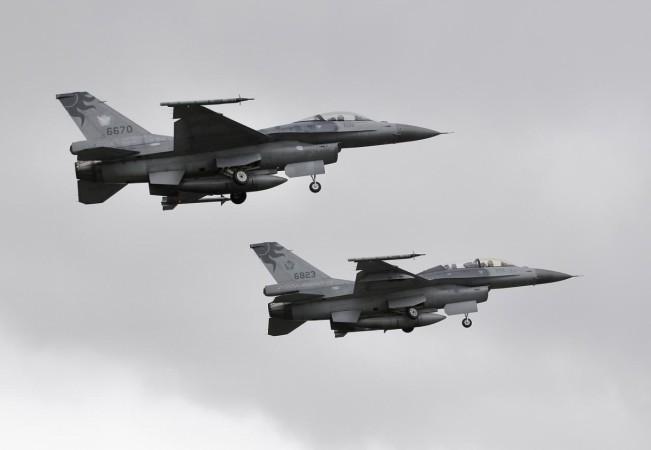
The US State Department on Tuesday approved a reported $8 billion sale of F-16 fighter jets to Taiwan, according to the Defence Security Cooperation Agency statement.
Around 66 Lockheed Martin Corp F-16 jets, 75 General Electric Co engines and other systems are being considered for sale, the official statement to Congress said. The defence deal is said to serve US national, economic and security interests as well as enhance Taiwan's defence capabilities.
Senate Foreign Relations Committee Chairman Jim Risch welcomed the proposed sale. "These fighters are critical to improving Taiwan's ability to defend its sovereign airspace, which is under increasing pressure from the People's Republic of China," Reuters quoted Risch as saying.
US President Donald Trump had notified Congress of the sale last week, Secretary of State Mike Pompeo told Fox News on Monday.
Pompeo also said that the sale was "consistent with past US policy" and that the US was "simply following through on the commitments we've made to all of the parties".
China has denounced the sale and warned of 'countermeasures' accusing the US of harming bilateral relations, peace and stability in the Taiwan Strait.
Responding to the announcement of the defence deal, state media China Daily said the sale sends an "erroneous signal" to Beijing.
Chinese Foreign Ministry spokesman Geng Shuang on Tuesday said US arms sales to Taiwan "severely violate" Washington - Beijing agreements and "constitute severe interference in China's internal affairs".
Warning of "consequences" he advised the US to "immediately cancel the planned arms sales, and stop selling weapons and military contact with Taiwan".
Tensions between China and Taiwan have increased after Beijing's assertion of the province as a "One China" and sacred territory. Beijing asserted last month it is "ready to go to war" if people "try to split Taiwan from the country".
China has extensive claims over the strategic South China Sea and has shown an aggressive stance against the US and its allies for undertaking naval operations in the region.
The United State's recent exit from the 1987 Intermediate-Range Nuclear Forces (INF) treaty allows Washington to develop its military assets especially in comparison to the advanced Chinese military capabilities. The bilateral treaty with Russia is said to have limited the US weapons development, especially sophisticated land-based missile force.
The US military test-fired ground-based cruise missile in California's San Nicolas Island, on Sunday, weeks after it officially exited the treaty.
Russia has called the missile launch a "mockery to the international community" and said that the country will also make offensive systems in retaliation.









!['Had denied Housefull franchise as they wanted me to wear a bikini': Tia Bajpai on turning down bold scripts [Exclusive]](https://data1.ibtimes.co.in/en/full/806605/had-denied-housefull-franchise-they-wanted-me-wear-bikini-tia-bajpai-turning-down-bold.png?w=220&h=138)



